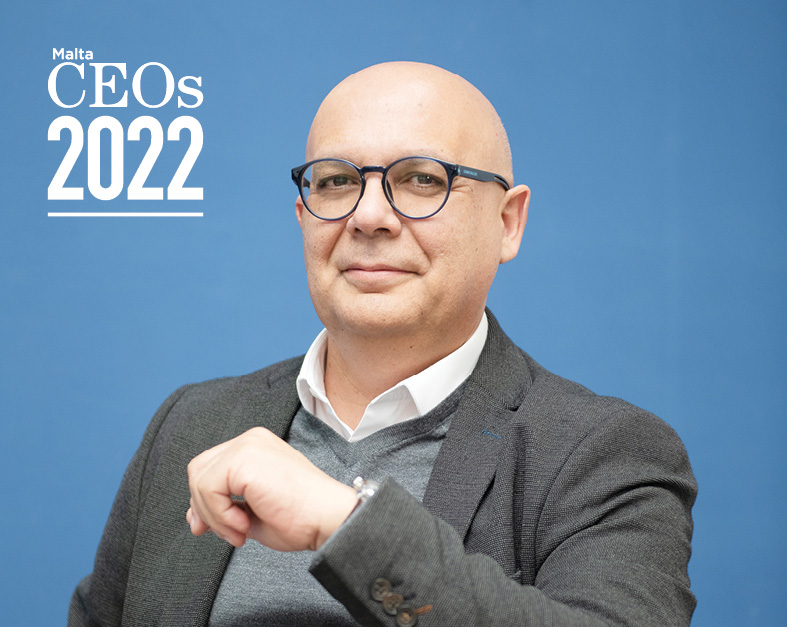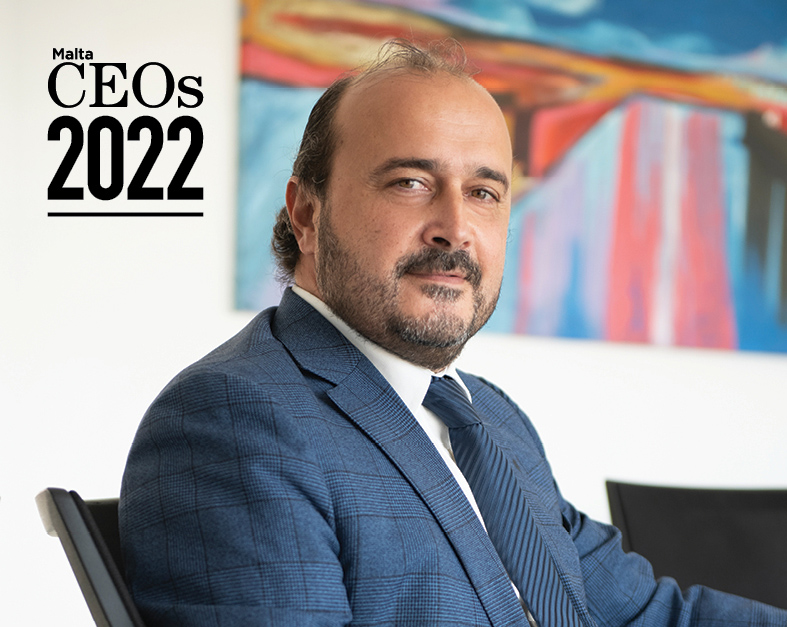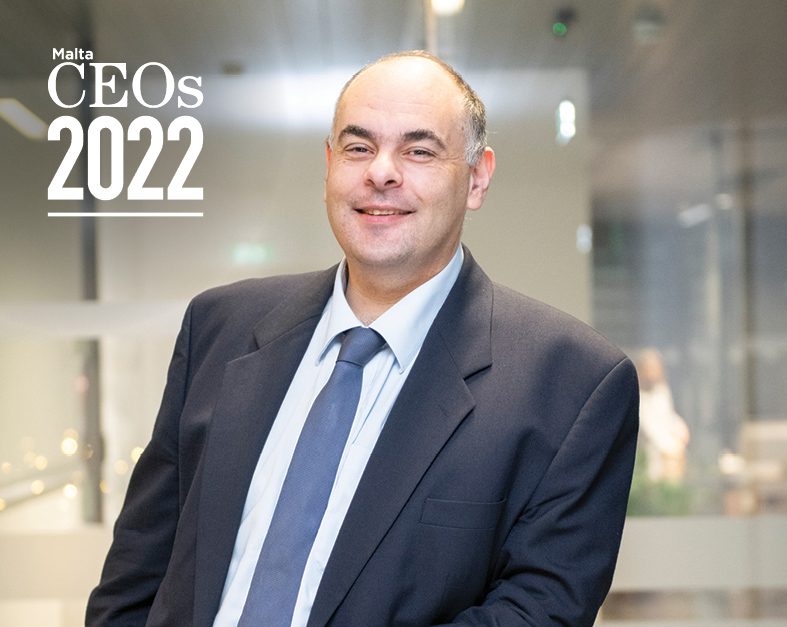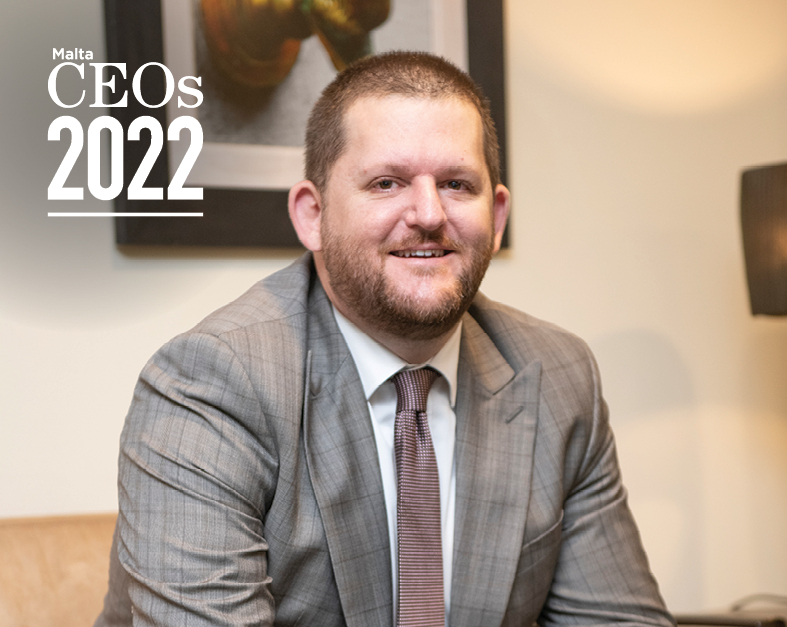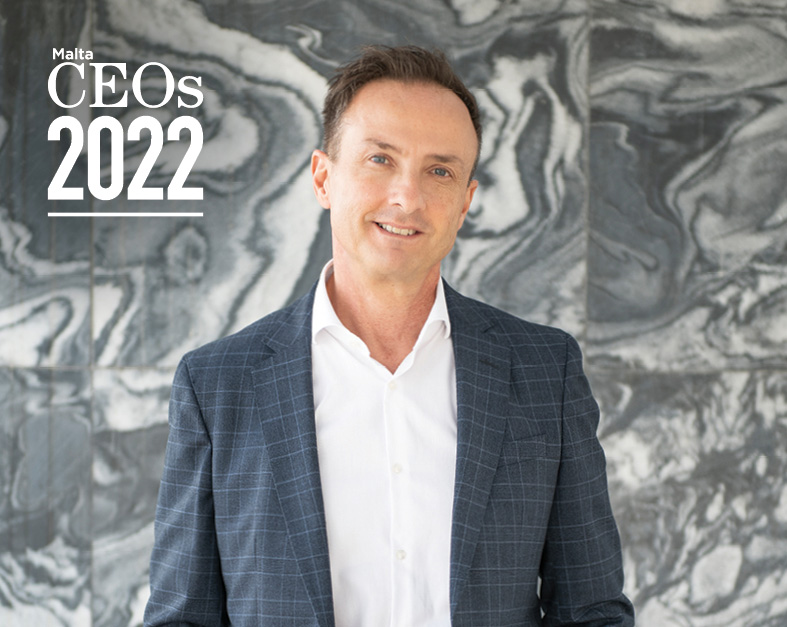Since its establishment more than 30 years ago, the Malta Freeport has developed into one of the busiest and largest ports in the Mediterranean and become a vital artery for the country. As Head of the body tasked with regulating the affairs of companies operating within it, Malta Freeport Corporation CEO David Magro has his eyes fixed on its continued business growth.
David Magro is keenly aware of the responsibility his position carries. As CEO of the Malta Freeport Corporation, success in his role means contributing to the economic development of one of Europe’s busiest container ports – and, by extension and given the crucial national role the Freeport has always played, of Malta itself.
“This role is multi-faceted,” David says. “I act as a facilitator between the operators and stakeholders within the Freeport, helping them communicate and resolve any issues. I work to attract and generate business, and, crucially, I serve the role of watchdog. We have the pivotal role of security within the free zone. It’s our role – along with Customs – to eliminate and eradicate illicit trade. That’s our reason for being.”

David came into the job having spent a large part of his career in the banking sector with Mid Med Bank, and later HSBC; a period he credits with moulding his character and equipping him with skills he still leans on today.
“What I learned then helped me consolidate my personality and my way of approaching customers, plus it introduced me to financial services, risk management and accountability. These factors all helped me make the transition and then settle into this new role,” he says.
“Beyond that, though, it taught me how to work in a network, which is something I always keep in mind now and which I emphasise among my employees. Building networks generates knowledge, business and trust.”
David describes leadership, as he sees it, as a continuous process of decision-making and negotiation: making the tough calls when needed, but also finding a way to bridge different positions and viewpoints. Having been previously involved, on behalf of a trade union, in several successful negotiations on collective agreements, one of the most satisfying parts of his role today is seeing good industrial relations develop across the Freeport’s workforce. “I really believe in the value of having an efficient business and avoiding complaints,” he says.
His negotiation experience also proved extremely valuable during the early days of the pandemic in 2020, when the shipping industry found itself as hard hit as any. “We had one operator come to us and say they couldn’t pay their lease for the next six months – we’re talking millions,” he recalls. “Obviously it was a shock. But we sat down with the operator, drew up a plan with them for the repayment of the lease and, ultimately, reached an agreement. Payments were made and nothing was forfeited.”
The start of the pandemic brought with it a lot of uncertainty, David says, as all ships from China were stopped due to restrictions. “It was tight; an operator even started to retrain employees in other skills,” he says. Meanwhile, local health regulations meant shipping crews were no longer able to disembark for shore leave, and crew changes weren’t allowed in Malta. “This was very difficult for the crews, but we had to be adamant about it; we couldn’t put the health of local residents at risk.”

However, by the summer of 2020, things had taken a turn and shipping began to recover quicker than anticipated. The figures, in fact, show that the Freeport is quickly returning to the levels it was accustomed to before the pandemic. In 2020, despite the disruptions, around 2.4 million containers passed through, destined either for the local market or for transhipment to other destinations. In 2021, that figure stood at 2.2 million as of the end of September. “Some vessels have to wait outside Malta for two days before they can enter to unload their containers,” David says. “Statistics indicate that we are the fourth busiest port in the Mediterranean.”
Which is not to say that it has all been plain sailing. David highlights the six-day obstruction of the Suez Canal in March 2021, which caused delays of around three weeks at the Freeport and all the way down the supply chain. In more recent months, shipping operators have complained of a shortage of empty containers due to an increase in demand, while new delays have been affecting the shipment of raw materials from Asia, all of which has sent prices skyrocketing. “It’s all a ripple effect in this industry: these events affect the shipping planning for operators, all the way down to the factories and those who need the raw materials for their end products, and ultimately consumers.”
As things return to normal, David’s sights are set on the future. One of the key projects on the immediate horizon is the development of a new onshore power supply (OPS) system, which will allow berthed vessels to switch off their engines and use dockside electricity supplies, drastically reducing emissions and noise pollution. David says the project will cost around €15 million, with works targeted to begin in June 2022 and last around two years. It will work in tandem with a similar set-up for cruise ships in the Grand Harbour, and comes as the EU is expected to announce a decarbonisation strategy requiring OPS systems in ports by 2030, putting Malta ahead of the curve.
“This will be a milestone for Malta and one we should be proud of; other countries in the Mediterranean are still exploring this concept,” David says. “It’s also a source of satisfaction for me because of the benefits it will bring to Birżebbuga residents. Ultimately, it’s not money that counts but giving something back to the community and, with this project, we have the opportunity to achieve something that will really benefit residents from a health and environmental perspective.”

The project is not the only one aimed at giving something back to the Freeport’s neighbours – who David admits have, for years, borne the brunt of rampant industrialisation all around them. The Malta Freeport Corporation has also run two schemes; one with an investment of around €500,000, subsidising double-glazing for residents, and it has recently embarked on the building of a new €3 million multi-storey car park, expected to be completed in early 2023. Two storeys of the new car park will be handed over to the management of the Birżebbuga Local Council with the hope of helping to ease parking issues in the town, particularly in the summer months.
Finally, from a financial point of view, David says his focus remains on enhancing the business at the Freeport itself, and seeing the Corporation involved in new free zones that the Government has said will eventually be identified and set up around the island to attract new investment. “The element I enjoy most in this job is reviewing the year-end results and seeing improvements in business,” he says. “It’s about realising the upshot of the work we’ve completed, and leaving things in a better place for those who come after us.”
This article is part of the serialisation of 50 interviews featured in MaltaCEOs 2022 – an annual high-end publication bringing together some of the country’s most influential business leaders.
‘Networking is everything in our line of work’ – WES Trade CEO Alessio Bucaioni
MaltaCEOs 2022 serialisation: For seven years, WES Trade has helped an expansive range of clients internationalise their products and services.
‘Something can appear out of the blue and change everything’ – CEO Joseph Attard
MaltaCEOs 2022 serialisation: Unsurprisingly, given his technical background, Joseph’s approach is very hands-on.
‘Our key people help us provide the quality of service we expect’ – RiskCap CEO
MaltaCEOs 2022 serialisation: CEO Paul Magro counts building successful teams and opening an office in London among his achievement.
‘We focus on our people and their ability to achieve’ – Projects Plus CEO James Camenzuli
MaltaCEOs 2022 serialisation: Projects Plus was set up in 2016 to see national projects such as the Oncology Centre through ...


